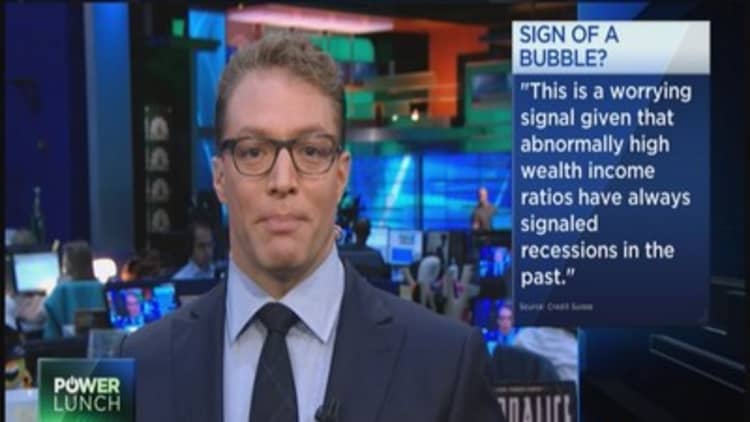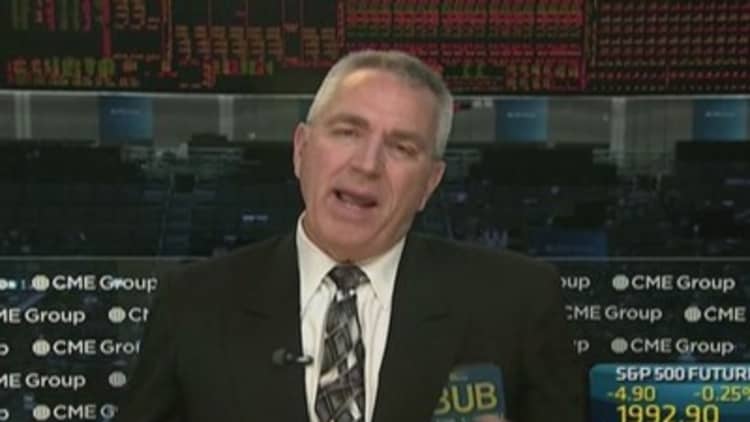
Optimism may be harder to come by these days. More than half of Americans surveyed in a Harris poll released Tuesday identified themselves as being lower-middle class or working class with low economic security. And 75 percent said they're being held back financially by roadblocks like the cost of housing (24 percent), health care (21 percent) and credit-card debt (20 percent).
And that's not the kicker.
"The most disappointing aspect is that 45 percent think they'll never get their finances back to where they were before the financial crisis," said Ken Rees, CEO of the Elevate credit service company, which commissioned the survey. "And a third are losing sleep over it."
Read MoreLackluster savings tarnishing seniors' golden years
They have reason to be pessimistic. A report Monday by the National Bureau of Economic Research found that the bottom 90 percent of income earners of the United States hit a high point in the 1980s, thanks to rising pension and housing wealth, then saw their financial status rise again during the 1990s tech-boom and the mid-2000s housing bubble, then drop significantly since.
For them, "wealth is not growing at all—it has actually been declining since the Great Recession," said Gabriel Zucman, who co-authored the working paper with Emmanuel Sanz.

Over the 1986-2012 period, the authors found the average real growth rate of wealth per family was 1.9 percent, but added that this average "masks considerable heterogeneity." While wealth rose 5.3 percent per year for the top 0.1 percent, it did not grow at all for the bottom 90 percent. (Almost half of aggregate wealth accumulation was due to the top 0.1 percent alone.)
For the bottom 90 percent, wealth rose a lot during the late 1990s tech boom and the mid-2000s housing bubble, peaking at an average of $130,000 (in 2010 prices) in 2006, but it then collapsed to about $85,000 in 2009, according to the report. "Middle-class wealth has not yet recovered from the financial crisis," Zucman and Sanz concluded.
And with current savings rates, that's not likely to change anytime soon.
Read MoreA third of people have nothing saved for retirement
Forty-four percent of respondents to the Elevate survey reported having less than $2,000 in savings and 21 percent had none at all. Worse, 71 percent said they they were also carrying debt: 53 percent said the total was $10,000 or more and 32 percent had more than $20,000.
The Harris survey was conducted online from Sept. 8-10, 2014 among 2,022 adults on behalf of Elevate, a for-profit company that spun off from ThinkFinance.


